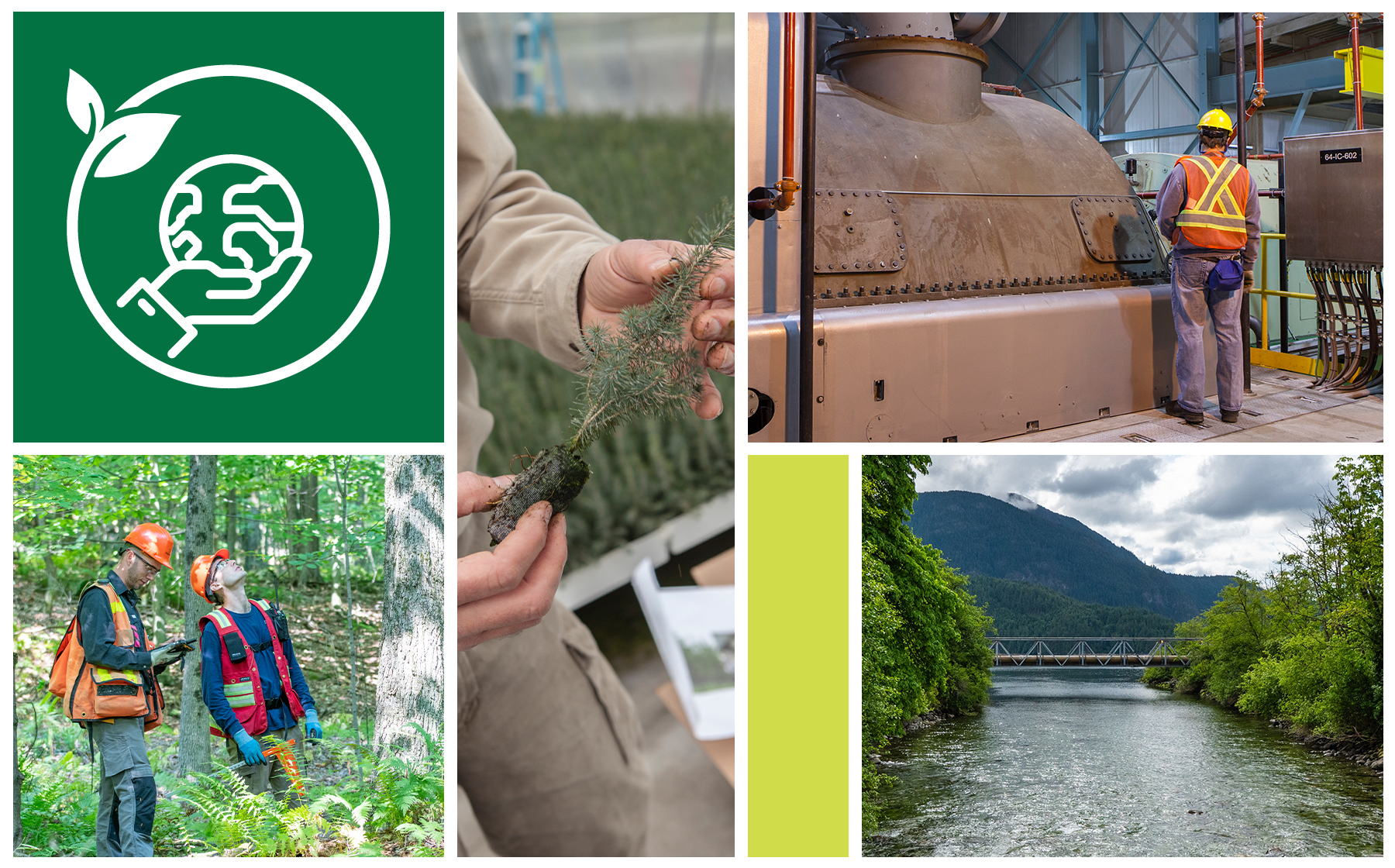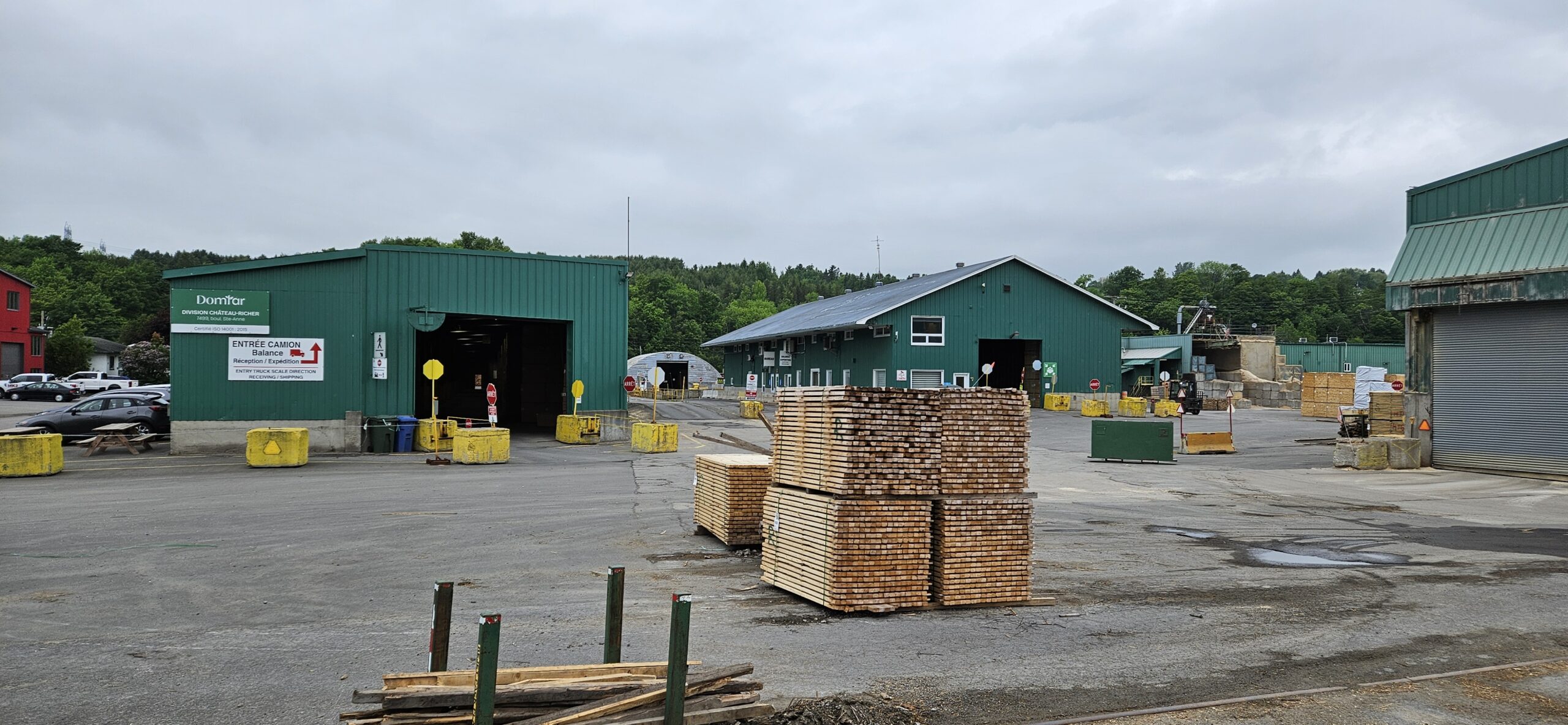At Domtar, we pride ourselves on producing high quality paper, pulp and packaging products that our customers can rely on. Our quality commitment extends from our mills to our customers.
“We want our customers to recommend and reorder our products. That ties into customer satisfaction and loyalty,” explains Scott Simmons, Domtar’s senior director of product quality. “It’s the foundation for how we design and manufacture our products.”
Simmons, who has 30 years of experience in pulp and paper quality management, has worked at every level of the organization. He says Domtar’s quality commitment shines in its processes and people.
“Every hour of every day, we’re paying attention to our processes and evaluating our products,” he says. “It’s not a one-time activity. It’s continuous improvement.”
Our processes benefit from continuous improvement initiatives.
Domtar’s quality commitment starts in the forest with our sustainable forestry practices and follows the fiber all the way through our manufacturing process to ensure we deliver consistent products to our customers.
“Quality is baked into all of our processes, from the woodyard into recovery, then into the pulp mill, through the paper machine and then down into the warehouse,” explains Greg Kempner, technical and quality manager at our Plymouth Mill. “It’s a mill-wide approach.”
Customer satisfaction is our most important measure of quality, and we use multiple metrics to track customer satisfaction, including: cost of quality (the dollar amount of claims per tons sold) and claim (the number of claims filed per 1,000 tons). Several of our facilities have seen dramatic improvements in both of these metrics, thanks to our strong focus on continuous improvement, which identifies and addresses opportunities to improve quality before an issue arises.
For example, our Johnsonburg Mill enjoyed a record quality year in 2022 with its J1 paper machine, which produces Husky®, Lynx® and book publishing paper. Lisa Burdick, Johnsonburg’s technical and quality control manager, says, “Our J1 machine, for example, paid out $0 in claims in 2022 and had only one minor claim in 797 days prior to December 31, 2022.”
Our DuBois Converting Center experienced a similar quality achievement of $0 in claims in 2022 on its folio machine, which takes large rolls of paper and cuts them down to various sizes for the printing industry. “The focus of the team is to safely produce an excellent product with zero complaints, and this past year we achieved $0 in claims for the second time in the machine’s 18 years in production,” says Mike Arblaster, plant manager for DuBois. “This achievement is very challenging to attain due to the high levels of expectation and sophistication of the equipment in the printing industry. I’m very proud of this team.”
Our mills and converting centers proactively address quality control. “We recognize that quality isn’t static. We have to shift and respond to changes that come over the horizon,” says Simmons. “As time, manufacturing, quality expectations and customer needs change, we have to change too.”
That means being proactive as well as reactive when it comes to quality control. “We have implemented an audit process, Quality Self Assessment, at our paper mills. The objective of this process is to identify ways to improve our quality practices in order to increase customer satisfaction,” says Tennille Altman, Domtar’s senior manager of paper quality.
But when quality incidents occur, Domtar addresses them quickly and effectively. “We don’t just want to know what happened, but why it happened. How do we make sure that it doesn’t keep happening?” says Rick Hardee, technical services director. “Also, how do we make sure that we’re challenging ourselves to continue to improve and step up year over year with our quality management system?”
Our people stay focused on our quality commitment.
In the end, Domtar’s quality commitment depends on every member of our team. At the Johnsonburg Mill, Burdick says, “The quality process begins and ends with our papermakers. We rely on them to make good decisions about shipping quality products to our customers, and they’re supported by a quality commitment from our executive leadership and management.”
Kempner agrees. “We make sure that everyone understands the importance of quality from their first day at Plymouth Mill — that what we’re sending to our customers meets their needs. But also, we’re always soliciting feedback from our operators because they’re the ones out on the floor.”
Additionally, all of our locations collaborate so that lessons learned in one facility can benefit another facility. “For instance, we have two mills making fluff pulp for hygiene products, and we have several making tissue products,” says Hardee. “How can we learn from each other?”
Finally, our quality teams go the extra mile to uphold Domtar’s quality commitment. “We take pride in providing superior customer service not only when we miss the mark, but also when we have an opportunity to better understand customers’ needs and even help improve their processes,” says Altman.
After several decades of working together as a team to ensure our quality commitment shines through each and every product we make, Domtar has a well-deserved reputation for making the best pulp and paper products for our customers.
“It takes every person and team in the whole organization to really deliver on our quality commitment,” says Simmons. “Some people think quality is the job of a quality manager. That’s not how we think at Domtar. Every employee contributes to the business so that day after day, month after month, year after year, we produce consistent, reliable products for our customers.”



![Overhead view of Domtar's J5 paper machine in Johnsonburg, Penn. Domtar's quality commitment extends from our mills to our customers. Read more on Newsroom[dot]Domtar[dot]com.](https://www.domtar.com/wp-content/uploads/2023/02/NR_J5pm_QualityCommitmentFeature.jpg)



